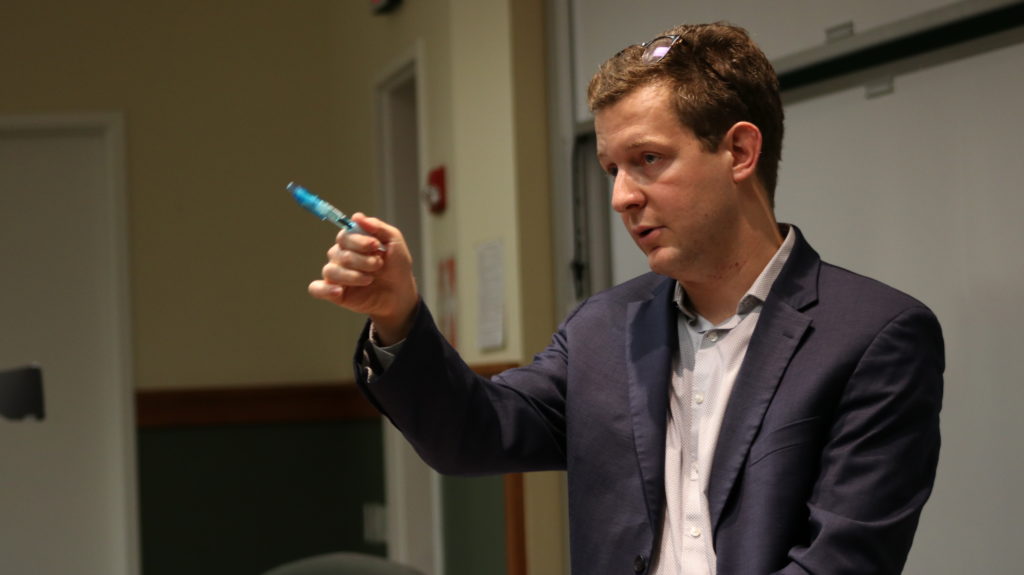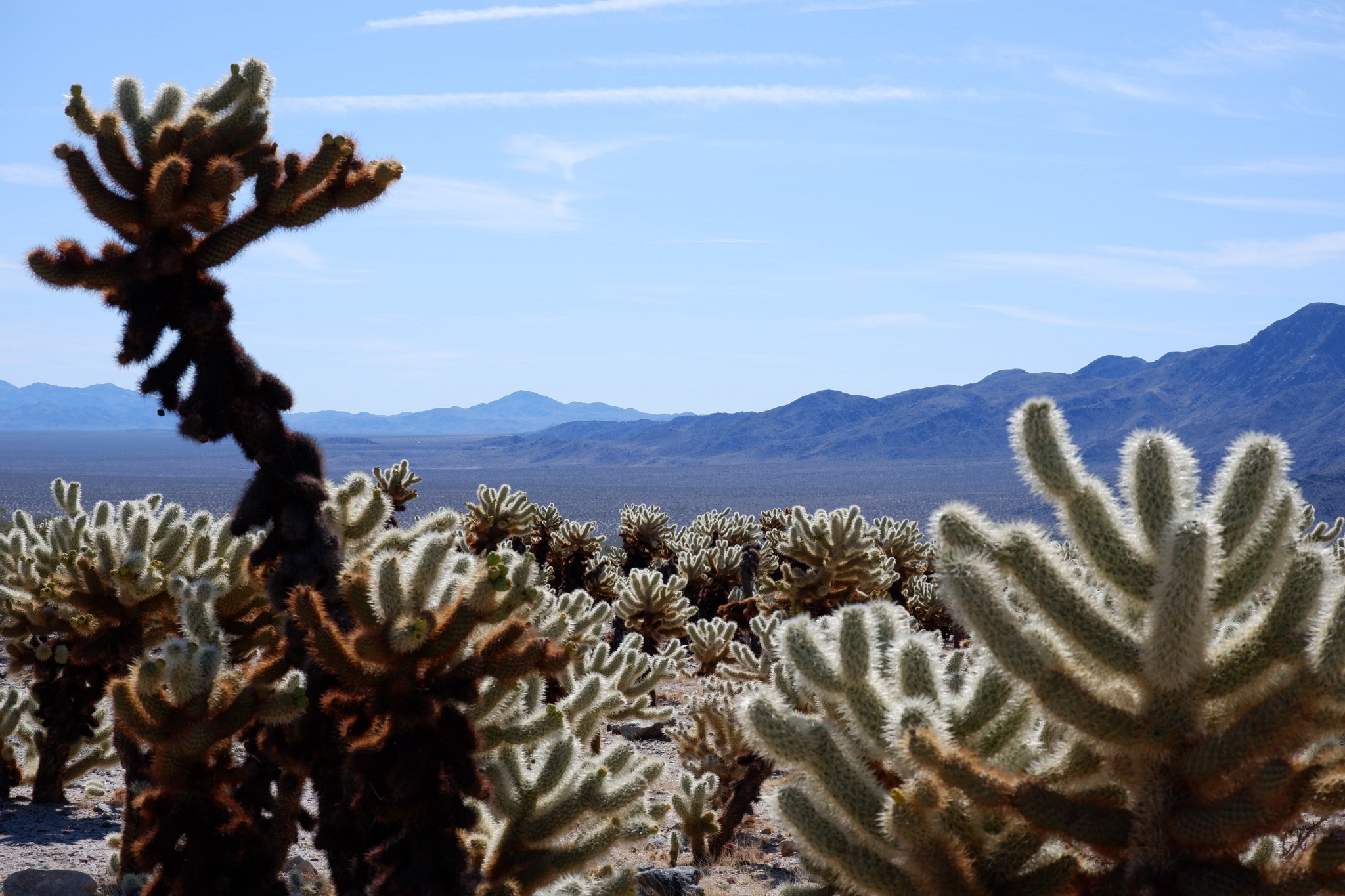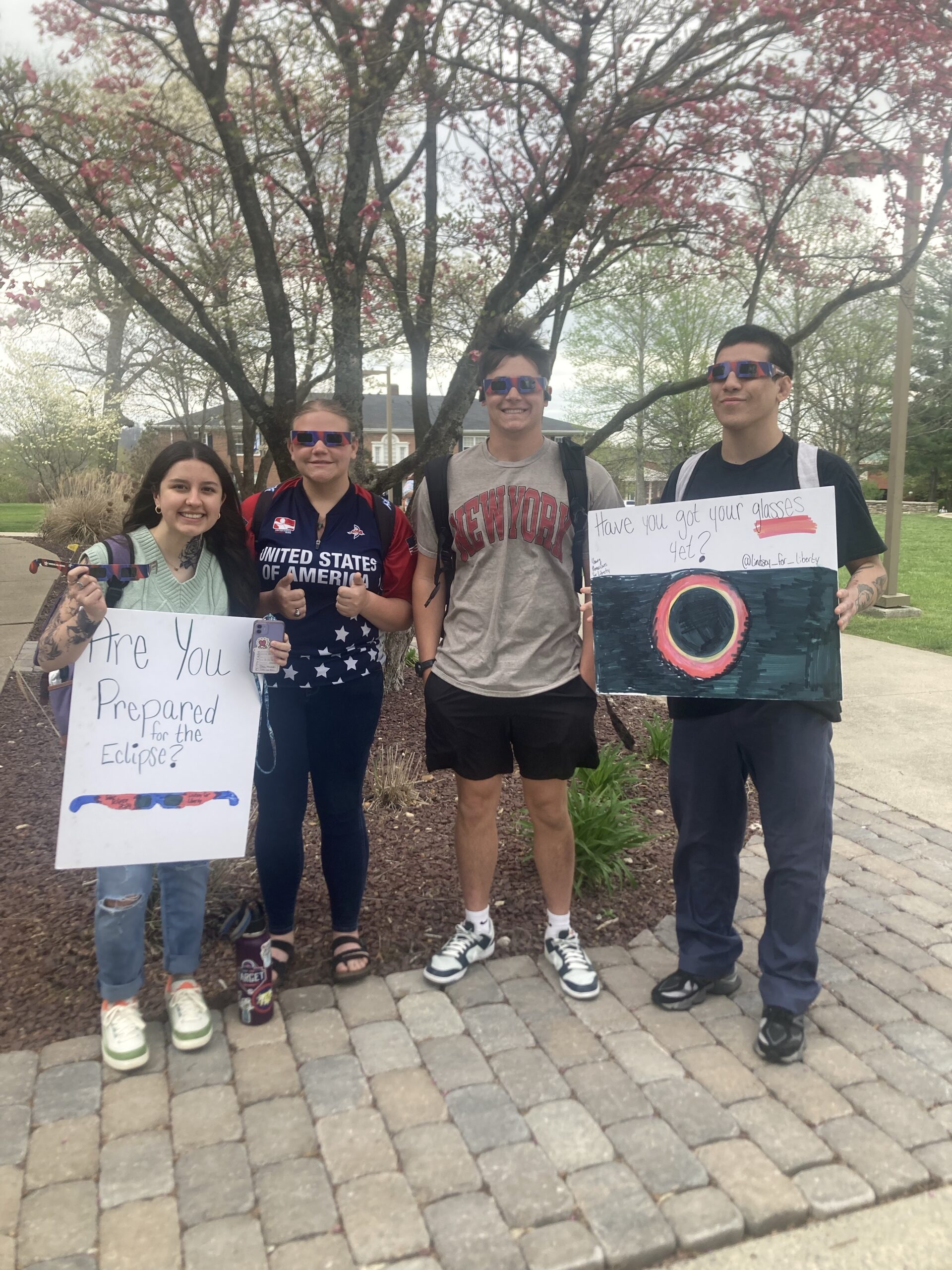As you all well know, CFACT has been busy promoting sustainable capitalism on college campuses as part of its ‘Capitalism is Sustainable!’ campaign. On October 13th, the show hit the road when CFACT’s National Field Coordinator, Bob Knee, spoke to Turning Point USA’s chapter at the University of Georgia.
During the speech, Knee made a special point to emphasize the key points of the tour. He illustrated that capitalism is the best way to help preserve animals, noting that there are “no chickens on the endangered species list.” He also gave reference to the story of the American Bison. The Bison, which had been over-hunted for years and was facing extinction, began to make major growth in its population numbers when market forces entered the equation via private ranchers. He also highlighted the role market forces have in controlling over-population. In his speech, he referenced the black bear, and how New Jersey had recently passed restrictions on hunting black bears. New Jersey has already seen a proportional rise in the number of bear-to-human interactions. He also told a personal story about how, in the same state that restricted black bear hunting (New Jersey), the local crab populations are kept alive via market forces.

Later in the speech, Knee made a point to highlight that the U.S. is the only country that is a signatory to the Paris Climate Accord that decreased its CO2 emissions, in spite of the fact we have withdrawn from the agreement. Finally, he talked about how left-wing solutions will be largely ineffective at combating the environmental problems we face. In doing so, he highlighted that socialist governments such as the U.S.S.R. and Venezuela have terrible records on environmental cleanliness. He closed off the speech by reminding students that companies that drive environmental innovation only exist in capitalist countries. That is not, as he highlighted, a coincidence.
If you’d like to learn how sustainable capitalism can benefit the environment, please visit the link here.
If you’d like to host a speaker on your campus this semester, please reach out and we would be happy to accommodate your request!



